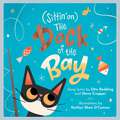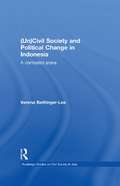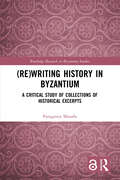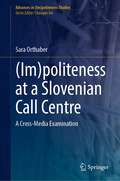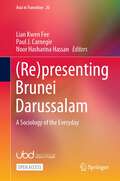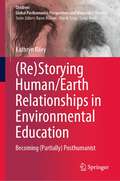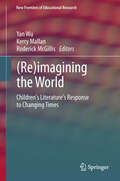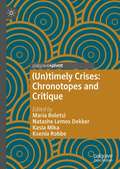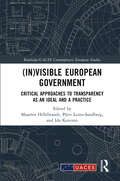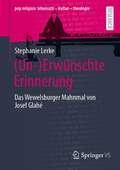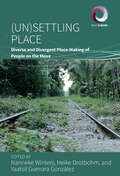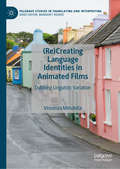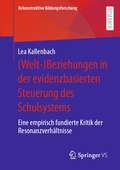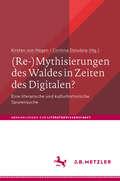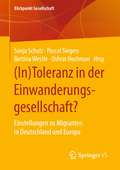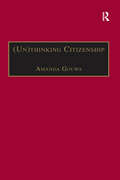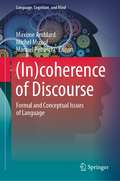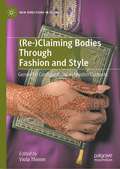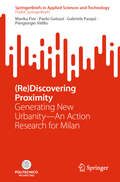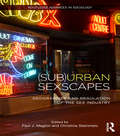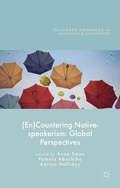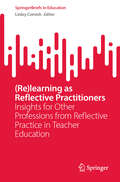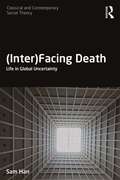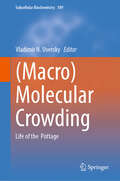- Table View
- List View
**Missing**: A Children's Picture Book (LyricPop #0)
by Steve Cropper Otis ReddingIncluded in Publishers Weekly's Spring 2021 Children's Sneak Previews Otis Redding and Steve Cropper's timeless ode to never-ending days is given fresh new life in this heartwarming picture book. Sittin' in the mornin' sun I'll be sittin' when the evening comes Watching the ships roll in Then I'll watch 'em roll away again, yeah (Sittin' on) The Dock of the Bay is a charming picture book set to one of the King of Soul's™ greatest hits. The song was one of the last Redding recorded, and ranked number four on Billboard's year-end Hot 100 chart, going on to win two GRAMMYs and be certified triple-platinum. With lyrics by Otis Redding and Steve Cropper and illustrations by Kaitlyn Shea O'Connor, this picture book imagines a lonesome cat fishing off a dock and hoping the fish will bite soon. (Sittin' on) The Dock of the Bay is the perfect picture book for parents wanting to share a classic song with their children, allowing both to find joy in it along the way. The Otis Redding Foundation: Redding was dedicated to improving the quality of life for his community through the education and empowerment of its youth. He provided scholarships and summer music programs which continued until his untimely death on December 10, 1967. Today, the mission of the Otis Redding Foundation, established in 2007 by Mrs. Zelma Redding, is to empower, enrich, and motivate all young people through programs involving music, writing, and instrumentation. To learn more, visit: otisreddingfoundation.org
**Missing**: A Contested Arena (Routledge Studies on Civil Society in Asia)
by Verena Beittinger-Lee(Un) Civil Society and Political Change in Indonesia provides critical analysis of Indonesia’s civil society and its impact on the country’s democratization efforts that does not only take the classical, pro-democratic actors of civil society into account but also portrays uncivil groups and their growing influence on political processes. Beittinger-Lee offers a revised categorization of civil society, including a model to define the sphere of ‘uncivil society’ more closely and to identify several subcategories of uncivil society. This is the first book to portrays various uncivil groups in Indonesia, ranging from vigilantes, militias, paramilitaries, youth groups, civil security task forces and militant Islamic (and other religious) groups, ethnonationalist groups to terrorist organizations and groups belonging to organized crime. Moreover, it provides the reader with an overview of Indonesia’s history, its political developments after the democratic opening, main improvements under the various presidents since Suharto’s fall, constitutional amendments and key reforms in human rights legislation. This book will be of interest to upper level undergraduates, postgraduates and academics in political science and Southeast Asian studies.
**Missing**: A Critical Study of Collections of Historical Excerpts (Routledge Research in Byzantine Studies)
by Panagiotis ManafisScholars have recently begun to study collections of Byzantine historical excerpts as autonomous pieces of literature. This book focuses on a series of minor collections that have received little or no scholarly attention, including the Epitome of the Seventh Century, the Excerpta Anonymi (tenth century), the Excerpta Salmasiana (eighth to eleventh centuries), and the Excerpta Planudea (thirteenth century). Three aspects of these texts are analysed in detail: their method of redaction, their literary structure, and their cultural and political function. Combining codicological, literary, and political analyses, this study contributes to a better understanding of the intertwining of knowledge and power, and suggests that these collections of historical excerpts should be seen as a Byzantine way of rewriting history. The Open Access version of this book, available at https://www.taylorfrancis.com/books/9780429351020, has been made available under a Creative Commons Attribution-Non Commercial-No Derivatives 4.0 license.
**Missing**: A Critical Study of Collections of Historical Excerpts (Routledge Research in Byzantine Studies)
by Panagiotis ManafisScholars have recently begun to study collections of Byzantine historical excerpts as autonomous pieces of literature. This book focuses on a series of minor collections that have received little or no scholarly attention, including the Epitome of the Seventh Century, the Excerpta Anonymi (tenth century), the Excerpta Salmasiana (eighth to eleventh centuries), and the Excerpta Planudea (thirteenth century). Three aspects of these texts are analysed in detail: their method of redaction, their literary structure, and their cultural and political function. Combining codicological, literary, and political analyses, this study contributes to a better understanding of the intertwining of knowledge and power, and suggests that these collections of historical excerpts should be seen as a Byzantine way of rewriting history.The Open Access version of this book, available at https://www.taylorfrancis.com/books/9780429351020, has been made available under a Creative Commons Attribution-Non Commercial-No Derivatives 4.0 license.
**Missing**: A Cross-Media Examination (Advances in (Im)politeness Studies)
by Sara OrthaberThis volume covers the field of linguistic (im)politeness in a particular mediated, customer-oriented setting. It is the first book to do so across telephone, email and social media. It offers key insights into a unique customer service setting through authentic and spontaneous data analysis. The book looks at how customers and agents of a large public transport company engage in transactional services and impolite behaviour. This text is directed at scholars and practitioners working in communication, business discourse, (socio)pragmatics, interaction studies, and social media interactions. It is also of great value to students in applied linguistics and scholars of Slavic languages, particularly Slovenian. The cross-media study is also of value to public/private institutions to reflect on their work practices, helping them improve existing customer–service provider relationships. The diverse readership and appeal are essential features of this book.Examines mediated institutional talk and impoliteness in the Slovenian languageCovers mediated service interactions, such as requests and complaints across three different mediaProvides in-depth insights into communication within a contemporary business environment
**Missing**: A Sociology of the Everyday (Asia in Transition #20)
by Noor Hasharina Hassan Paul J. Carnegie Lian Kwen FeeThis thoughtful and wide-ranging open access volume explores the forces and issues shaping and defining contemporary identities and everyday life in Brunei Darussalam. It is a subject that until now has received comparatively limited attention from mainstream social scientists working on Southeast Asian societies. The volume helps remedy that deficit by detailing the ways in which religion, gender, place, ethnicity, nation-state formation, migration and economic activity work their way into and reflect in the lives of ordinary Bruneians. In a first of its kind, all the lead authors of the chapter contributions are local Bruneian scholars, and the editors skilfully bring the study of Brunei into the fold of the sociology of everyday life from multiple disciplinary directions. By engaging local scholars to document everyday concerns that matter to them, the volume presents a collage of distinct but interrelated case studies that have been previously undocumented or relatively underappreciated. These interior portrayals render new angles of vision, scale and nuance to our understandings of Brunei often overlooked by mainstream inquiry. Each in its own way speaks to how structures and institutions express themselves through complex processes to influence the lives of inhabitants. Academic scholars, university students and others interested in the study of contemporary Brunei Darussalam will find this volume an invaluable resource for unravelling its diversity and textures. At the same time, it hopefully stimulates critical reflection on positionality, hierarchies of knowledge production, cultural diversity and the ways in which we approach the social science study of Brunei. ‘I wish to commend the editors for bringing this volume to fruition. It is an important book in the context of Southeast Asian sociology and even more important for the development of our social, geographical, cultural and historical knowledge of Brunei.’ —Victor T. King, University of Leeds
**Missing**: Becoming (Partially) Posthumanist (Children: Global Posthumanist Perspectives and Materialist Theories)
by Kathryn RileyThis book is situated in the simultaneous thinking (theory) and doing (action) of posthumanist performativity and new materialist methodologies to bring forth a multitude of stories that demonstrate co-constituted and co-implicated worldmaking practices.It is written in response to the fact that our Earth is at a critical juncture. As atmospheric temperatures rise and cast unprecedented and wide-spread social and ecological crises across the planet, social and ecological injustices and threats cannot be separated from globalising, neoliberal, capitalist, and colonial discourses that proliferate through anthropocentric and humancentric logics. Manifesting in binary classifications that position the human as separate from the Earth, and dominant categories of the human in hierarchies of power, such logics homogenise and institutionalise the field of environmental education and result in an over-emphasis on instrumentalist, technicist, and mechanistic teaching and learning practices.Exploring the affects emerging within, and between, an assemblage comprising Researcher/Teacher/Environmental Education Worldings, this book seeks to understand how the researcher makes sense of herself with/in the broader ecologies of the world; collaborative processes with an elementary-school teacher in Saskatchewan, Canada, as actualised through four co-created and co-implemented multisensory researcher/teacher enactments (Mindful Walking, Mapping Worlds, Eco-art Installation, and Photographic Encounters); and how the researcher/teacher organises themselves with Land-based pedagogies, environmental education curriculum policy, and wider discourses of Western education. This book does not propose a better way of teaching and learning in environmental education. Rather, showing how difference between categories is relationally bound, this book offers a conceptual (re)storying of human/Earth relationships in environmental education for social and ecological justice in these times of the Anthropocene.
**Missing**: Children's literature's response to changing times (New Frontiers of Educational Research)
by Yan Wu Kerry Mallan Roderick Mcgillis(Re)Imagining the world: Children's Literature's Response to Changing Times considers how writers of fiction for children imagine 'the world', not one universal world, but different worlds: imaginary, strange, familiar, even monstrous worlds. The chapters in this collection discuss how fiction for children engages with some of the changes brought about by new technologies, information literacy, consumerism, migration, politics, different family structures, cosmopolitanism, new and old monsters. They also invite us to think about how memory shapes our understanding of the past, and how fiction engages our emotions, our capacity to empathise, and our desire to discover, and what the future may hold. The contributors bring different perspectives from education, postcolonial studies, literary criticism, cultural studies, childhood studies, postmodernism, and the social sciences. With a wide coverage of texts from different countries, and scholarly and lively discussions, this collection is itself a testament to the power of the human imagination and the significance of children's literature in the education of young people.
**Missing**: Chronotopes and Critique (Palgrave Studies in Globalization, Culture and Society)
by Maria Boletsi Kasia Mika Ksenia Robbe Natashe Lemos DekkerUn)timely Crises explores how ‘crisis’—as a narrative, concept, grammar, and experience—structures time and space. This collectively written volume extends Bakhtin’s ‘chronotope’ to challenge mobilizations of crisis within neoliberal governmentality. The book explores how contemporary crises can trigger memories and traumas of earlier events as well as foster practices of resistance and alternative visions of the future. Drawing from across disciplines and geographical contexts, (Un)timely Crises reimagines the relation of ‘crisis’ with ‘critique’, proposing future trajectories for thinking and living in and through crisis.
**Missing**: Critical Approaches to Transparency as an Ideal and a Practice (Routledge/UACES Contemporary European Studies)
by Päivi Leino-Sandberg Ida Koivisto Maarten HillebrandtThis book questions the theoretical premises and practical applications of transparency, showing both the promises and perils of transparency in a methodologically innovative way and in a cross-section of policy instruments. It scrutinizes transparency from three perspectives - methodologically, theoretically, and empirically - both in the specific context of the EU but also in the wider context of modern society in which transparency is embraced as an almost unquestionable virtue. This book examines the ways in which transparency practices can make institutions visible and stands out for its methodological self-reflection: to fully understand the irresistible call for transparency in our governing institutions, we must reflect on our own relationship with it. This book will be of key interest to scholars and students of transparency studies, democratic legitimacy, global governance, governance law, EU studies and law and public policy more widely.
**Missing**: Das Wewelsburger Mahnmal von Josef Glahé (pop.religion: lebensstil – kultur – theologie)
by Stephanie LerkeAngesichts des Verstummens von Zeitzeug:innen und des Wiedererstarkens fremdenfeindlicher Motive und Mechanismen wie Antisemitismus, Rassismus und Rechtspopulismus ist Erinnerung an den Holocaust aktueller denn je. Gedenkstätten wie die „Erinnerungs- und Gedenkstätte Wewelsburg 1933 – 1945“ nahe Paderborn stellen in der gesellschaftlichen Erinnerungskultur als bildungspolitische Orte zur Erinnerung an die Opfer des Nationalsozialismus und der Mahnung an die leidvollen Ereignisse unter der nationalsozialistischen Diktatur eine notwendige Möglichkeit hierfür dar. Um sich mit dieser politisch sensiblen Geschichte und ihren aktuellen Erscheinungsformen auseinanderzusetzen, bedient sich die Wewelsburg des Ausdrucksmittels Kunst. Als erste umfassende interdisziplinäre Grundlagenforschung befasst sich dieses Buch mit jenem einzigartigen Stück bundesdeutscher Kunstgeschichte nach 1945, einer bildgewordenen, (un-)erwünschten Erinnerung aus einer theologischen Perspektive. Stephanie Lerke zeigt auf, dass das nachkriegsexpressionistische Wewelsburger Mahnmal von Josef Glahé den Betrachtenden durch sein breites Bildprogramm ein komplexes Themenfeld von historischen und theologischen Inhalten mit aktueller, erinnerungspolitischer Relevanz eröffnet. Sie verdeutlicht, wie dieses „zeitlose“ Medium mit seiner Fülle an Interpretationsspielräumen und Gegenwartsbezügen zur individuellen Spurensuche und Auseinandersetzung mit lebendiger Geschichte einlädt.
**Missing**: Diverse and Divergent Place-Making of People on the Move (Worlds in Motion #14)
by Nanneke Winters, Heike Drotbohm and Yaatsil Guevara GonzálezPeople who are “on the move,” particularly migrants and the displaced, often inhabit places that are considered temporary, peripheral, and remote. (Un)Settling Place recentralizes these “out-of-the-way” places as key sites in the shaping of people’s mobility and identities. Ranging from the surveillance and care that migrants experience to the re-creation of social ties and the re-claiming of space, this collection volume seeks to show how a critical approach to in-between place-making can challenge the idea of place as fixed, singular, or one-directional, offering new ways of understanding migrant trajectories.
**Missing**: Dubbing Linguistic Variation (Palgrave Studies in Translating and Interpreting)
by Vincenza MinutellaThis book describes the dubbing process of English-language animated films produced by US companies in the 21st century, exploring how linguistic variation and multilingualism are used to create characters and identities and examining how Italian dubbing professionals deal with this linguistic characterisation. The analysis carried out relies on a diverse range of research tools: text analysis, corpus study and personal communications with dubbing practitioners. The book describes the dubbing workflow and dubbing strategies in Italy and seeks to identify recurrent patterns and therefore norms, as well as stereotypes or creativity in the way multilingualism and linguistic variation are tackled. It will be of interest to students and scholars of translation, linguistic variation, film and media.
**Missing**: Eine empirisch fundierte Kritik der Resonanzverhältnisse (Rekonstruktive Bildungsforschung #38)
by Lea KallenbachAusgehend von erheblichen und anhaltenden Wirksamkeitsdefiziten nimmt Lea Kallenbach in der vorliegenden Arbeit eine Perspektiverweiterung auf die evidenzbasierte Steuerung des Schulsystems vor. Dies erfolgt in zweifacher Weise: theoretisch auf der Grundlage der Weltbeziehungssoziologie (Rosa 2016) und empirisch über die Entwicklung und Anwendung eines rekonstruktiven Zugangs. Hierdurch eröffnen sich neue Interpretationswege, die das Nicht-Gelingen evidenzbasierter Steuerung als Schnittstellenproblematik zwischen einzelnen Ebenen des Schulsystems verstehen.
**Missing**: Eine literarische und kulturhistorische Spurensuche (Abhandlungen zur Literaturwissenschaft)
by Corinna Dziudzia Kirsten Von HagenAktuell ist Wald in öffentlichen Diskursen zentral, verbunden mit einer Re-Mythisierung, die zum einen als Effekt einer ökologisch bedingten Krise und zum anderen als Folge einer Primordialität des Digitalen zu lesen ist. Wald ist Anti-Digitalität, weil umfassend sinnlich erfahrbar. Umso mehr sich gerade das Buch in seiner Materialität vom Wald als rohstoffliefernder Grundlage entfernt, wird der Wald Thema in Ecocriticism, Kulturökologie und Nature Writing. Doch der Wald hat immer schon zahlreiche Mythisierungen erfahren, als Schutz- und Inspirationsort ebenso wie als Denkfigur lassen sich zahlreiche Inszenierungsformen beobachten, die von Dante bis zu aktuellen Serien, Filmen und Comics führen. In den nun versammelten Beiträgen einer neuen nachhaltigen Form von Online-Studientagen wird der Ubiquität des Waldes aus einer interdisziplinären Perspektive nachgespürt.
**Missing**: Einstellungen zu Migranten in Deutschland und Europa (Blickpunkt Gesellschaft)
by Pascal Siegers Sonja Schulz Oshrat Hochman Bettina WestleDieser Band versammelt verschiedene Untersuchungen zu Einstellungen zu Migranten und zu nationalistischem Wahlverhalten, die alle auf repräsentativen Bevölkerungsumfragen beruhen. Insgesamt verdeutlicht die Gesamtschau der in diesem Band versammelten Beiträge die Bedeutsamkeit von (positiven) Kontakten zwischen der deutschen Aufnahmegesellschaft und der Migrantenpopulation. Hinweise auf eine allgemeine Verschlechterung des Meinungsklimas gegenüber ethnischen Minderheiten ergeben sich aus den Studien nicht. Sofern Migration nicht als Bedrohung für den eigenen Status wahrgenommen wird, kann verstärkter Kontakt dazu führen, dass die deutsche Bevölkerung insgesamt toleranter und offener wird. Im Gegenschluss kann eine wahrgenommene Bedrohung des eigenen Status und der eigenen Ressourcen zu einer gesellschaftlichen Polarisierung führen. Der Wandel hin zu einer größeren Akzeptanz Zugewanderter ist also nicht irreversibel: Die „offene Gesellschaft“ in der Bundesrepublik muss ständig aktiv erarbeitet werden.
**Missing**: Feminist Debates in Contemporary South Africa (Gender in a Global/Local World)
by Amanda GouwsThe study of citizenship in the context of South Africa implicitly challenges the rights-based democracy in South Africa, while literature regarding women and citizenship has greatly contributed to a new understanding of citizenship. Locally, many global processes are reproduced in the discourse of rights-claiming, issues of institutional representation, bodily integrity in the face of violence, and care in the face of a lack of care. This volume takes the debate of citizenship in South Africa in a more theoretical and empirical direction while engaging with knowledge produced elsewhere in the world. As part of the Gender in a Local/Global World series, it investigates the making of gendered citizenship, institutionalization of gender politics, the state of gendered policy making, local citizenship, rights, the women's movement, gendered violence, as well as citizenship and the body.
**Missing**: Formal and Conceptual Issues of Language (Language, Cognition, and Mind #10)
by Manuel Rebuschi Michel Musiol Maxime AmblardThis present book explores recent advances in modeling discourse processes, in particular, new approaches aimed at understanding pathological language behavior specific to schizophrenia. The contributors examine the modeling paradigm of formal semantics, which falls within the scope of both linguistics and logic while providing overlapping links with other fields such as philosophy of language and cognitive psychology. This book is based on results presented during the series of workshops on (In)Coherence and Discourse organized by SLAM (Schizophrenia and Language: Analysis and Modeling), a project developed to systemize the study of pathological language processing by taking an overarching interdisciplinary approach combining psychology, linguistics, computer science and philosophy. The principle focus is on conversations produced by people with psychiatric disorders such as schizophrenia and autism. The contributions come from young and experienced researchers, and invited speakers. The book appeals to likeminded students and researchers.
**Missing**: Gendered Configurations in Muslim Contexts (New Directions in Islam)
by Viola ThimmThis book investigates ways of dressing, style and fashion as gendered and embodied, but equally as “religionized” phenomena, particularly focusing on one significant world religion: Islam. Through their clothing, Muslims negotiate concepts and interpretations of Islam and construct their intersectionally interwoven position in the world. Taking the interlinkages between ‘fashionized religion,’ ‘religionized fashion,’ commercialization and processes of feminization as a starting point, this book reshapes our understanding of gendered forms of religiosity and spirituality through the lens of gender and embodiment. Focusing mainly on the agency and creativity of women as they appropriate ways of performing and interpreting various modalities of Muslim clothing and body practices, the book investigates how these social actors deal with empowering conditions as well as restrictive situations. Foregrounding contemporary scholars’ diverse disciplinary, theoretical and methodological approaches, this book problematizes and complicates the discursive and lived interactions and intersections between gender, fashion, spirituality, religion, class, and ethnicity. It will be relevant to a broad audience of researchers across gender, sociology of religion, Islamic and fashion studies.
**Missing**: Generating New Urbanity—An Action Research for Milan (SpringerBriefs in Applied Sciences and Technology)
by Gabriele Pasqui Marika Fior Paolo Galuzzi Piergiorgio VitilloThis book explores the topic of proximity and its relations in the design of contemporary urban fabrics and public spaces. The effects of the COVID-19 pandemic and reflections on the future of cities have lately shed light on the concept of proximity, which is intended as the relationship between communities and urban functions and as relations among people, built spaces, and open spaces. The proximity is a historic and fertile field of interest for American and Northern European urban studies; it is a spatial and social program seemingly surpassed by the styles and rhythms of contemporary city life, but today it is back in vogue with different purposes. Meanwhile, the action research developed by the Department of Architecture and Urban Studies at the Politecnico di Milano for the Municipality of Milan reached its conclusion (2018–2020). The research work focused on contextualizing the new M4 Metro line stations under construction, and jointed mobility flows and places, long-range networks and local ones, boosting the idea of metro stations as regenerative urban thresholds and urban platforms for enabling environmental, sustainable settlement, and active mobility systems. In other words, the action research for Milan shows how to achieve the concept of proximity in the urban design practice in a dense, stratified, and complex urban context.
**Missing**: Geographies and Regulation of the Sex Industry (Routledge Advances in Sociology)
by Paul J. Maginn Christine Steinmetz(Sub)Urban Sexscapes brings together a collection of theoretically-informed and empirically rich case studies from internationally renowned and emerging scholars highlighting the contemporary and historical geographies and regulation of the commercial sex industry. Contributions in this edited volume examine the spatial and regulatory contours of the sex industry from a range of disciplinary perspectives—urban planning, urban geography, urban sociology, and, cultural and media studies—and geographical contexts—Australia, the UK, US and North Africa. In overall terms, (Sub)urban Sexscapes highlights the mainstreaming of commercial sex premises—sex shops, brothels, strip clubs and queer spaces—and products—sex toys, erotic literature and pornography—now being commonplace in night time economy spaces, the high street, suburban shopping centres and the home. In addition, the aesthetics of commercial and alternative sexual practices—BDSM and pornography—permeate the (sub)urban landscape via billboards, newspapers and magazines, television, music videos and the Internet. The role of sex, sexuality and commercialized sex, in contributing to the general character of our cities cannot be ignored. In short, there is a need for policy-makers to be realistic about the historical, contemporary and future presence of the sex industry. Ultimately, the regulation of the sex industry should be informed by evidence as opposed to moral panics. *** Winner of the Planning Institute of Australia (WA) 2015 Award for Excellence in Cutting Edge Research and Teaching ***
**Missing**: Global Perspectives (Palgrave Advances in Language and Linguistics)
by Adrian Holliday Anne Swan Pamela AboshihaThe book addresses the issue of native-speakerism, an ideology based on the assumption that 'native speakers' of English have a special claim to the language itself, through critical qualitative studies of the lived experiences of practising teachers and students in a range of scenarios.
**Missing**: Insights for Other Professions from Reflective Practice in Teacher Education (SpringerBriefs in Education)
by Linley CornishThis book examines significant developments in reflective practice, delving into research conducted with novice teachers. It fills a gap in existing literature by examining the 'how' of reflective practice. How do professionals learn reflective practice, fostering relearning? How do they guide students, mentees, and novices in adopting reflective practices? Stemming from teacher education, the focus is extended beyond this field, emphasizing the relevance of these strategies across professions. It is divided into three parts – thinking about reflection; learning to reflect; and becoming a reflective practitioner. It offers fresh perspectives on conceptualizing reflective practice and suggests practical strategies for integrating it into pre-service coursework, assessment, training, and development. Intended for academics, practitioners, and educators across disciplines, this book serves as a comprehensive guide for anyone committed to fostering reflective practice within their professional sphere.
**Missing**: Life in Global Uncertainty (Classical and Contemporary Social Theory)
by Sam HanIn modern times, death is understood to have undergone a transformation not unlike religion. Whereas in the past it was out in the open, it now resides mostly in specialized spaces of sequestration—funeral homes, hospitals and other medical facilities. A mainstay in so-called traditional societies in the form of ritual practices, death was usually messy but meaningful, with the questions of what happens to the dead or where they go lying at the heart of traditional culture and religion. In modernity, however, we are said to have effectively sanitized it, embalmed it and packaged it—but it seems that death is back. In the current era marked by economic, political and social uncertainty, we see it on television, on the Internet; we see it almost everywhere. (Inter)Facing Death analyzes the nexus of death and digital culture in the contemporary moment in the context of recent developments in social, cultural and political theory. It argues that death today can be thought of as "interfaced," that is mediated and expressed, in various aspects of contemporary life rather than put to the side or overcome, as many narratives of modernity have suggested. Employing concepts from anthropology, sociology, media studies and communications, (Inter)Facing Death examines diverse phenomena where death and digital culture meet, including art, online suicide pacts, the mourning of celebrity deaths, terrorist beheadings and selfies. Providing new lines of thinking about one of the oldest questions facing the human and social sciences, this book will appeal to scholars and students of social and political theory, anthropology, sociology and cultural and media studies with interests in death.
**Missing**: Life of the Pottage (Subcellular Biochemistry #109)
by Vladimir N. UverskyThis book offers a general overview of an important biological phenomenon known as macromolecular crowding. This phenomenon is rooted in the fact that the living cell contains very large quantities of various biological macromolecules, such as proteins, nucleic acids, and carbohydrates, whose concentration can be as high as 400 mg/ml, and which occupy about 30% of the cell volume. Such a crowded environment represents a type of cellular pottage with considerably restricted amounts of free water and has several specific characteristics, such as changing viscosity, water activity, and famous volume exclusion originating from the simple idea that the volume occupied by the cellular macromolecules is unavailable to other molecules. All this may have large effects on both stability of biological macromolecules and macromolecular equilibria, including protein–protein interactions, protein folding, protein aggregation, and macromolecular association, as well as may lead to significant alterations in the rates of chemical reactions. However, the effect of such a complex crowded environment on the behavior of biological macromolecules is poorly understood. This is because most of the biomolecular research in vitro is traditionally conducted in dilute solutions, which by no means can be considered adequate models of the extremely crowded intracellular space. To overcome these issues, multiple approaches are being developed to mimic macromolecular environments and to investigate biomolecules under these conditions of artificial crowding and confinement. Importantly, recent years revealed that the distribution of macromolecules within the intracellular space is highly inhomogeneous; i.e., macromolecular crowding is characterized by the remarkable spatio-temporal heterogeneity, where one can find various membrane-less organelles and biological condensates representing overcrowded liquid droplets. The biogenesis of these highly dynamic cellular entities is driven by the liquid-liquid phase separation, and their formation typically represents a cellular response to the changing environment. These observations opened multiple new directions for a better understanding of the complexity and peculiarities of the cellular molecular kitchen. This book aims at providing foundational information on these and related topics, which will be delivered by world-leading specialists in corresponding fields. By having chapters spread across all key foundational elements that come together in this field of study, this book will be the go-to reference in the area. It will provide guided access to the appropriate primary and secondary literature of this very exciting field. It also will provide a description of the physics of the process, give experimental guidance regarding the characterization of these phenomena, and show examples of well-understood systems. The book will provide a guide that will allow readers to rapidly form hypotheses and design experiments on their proteins or study system. <p class="MsoNormal" style="margin
